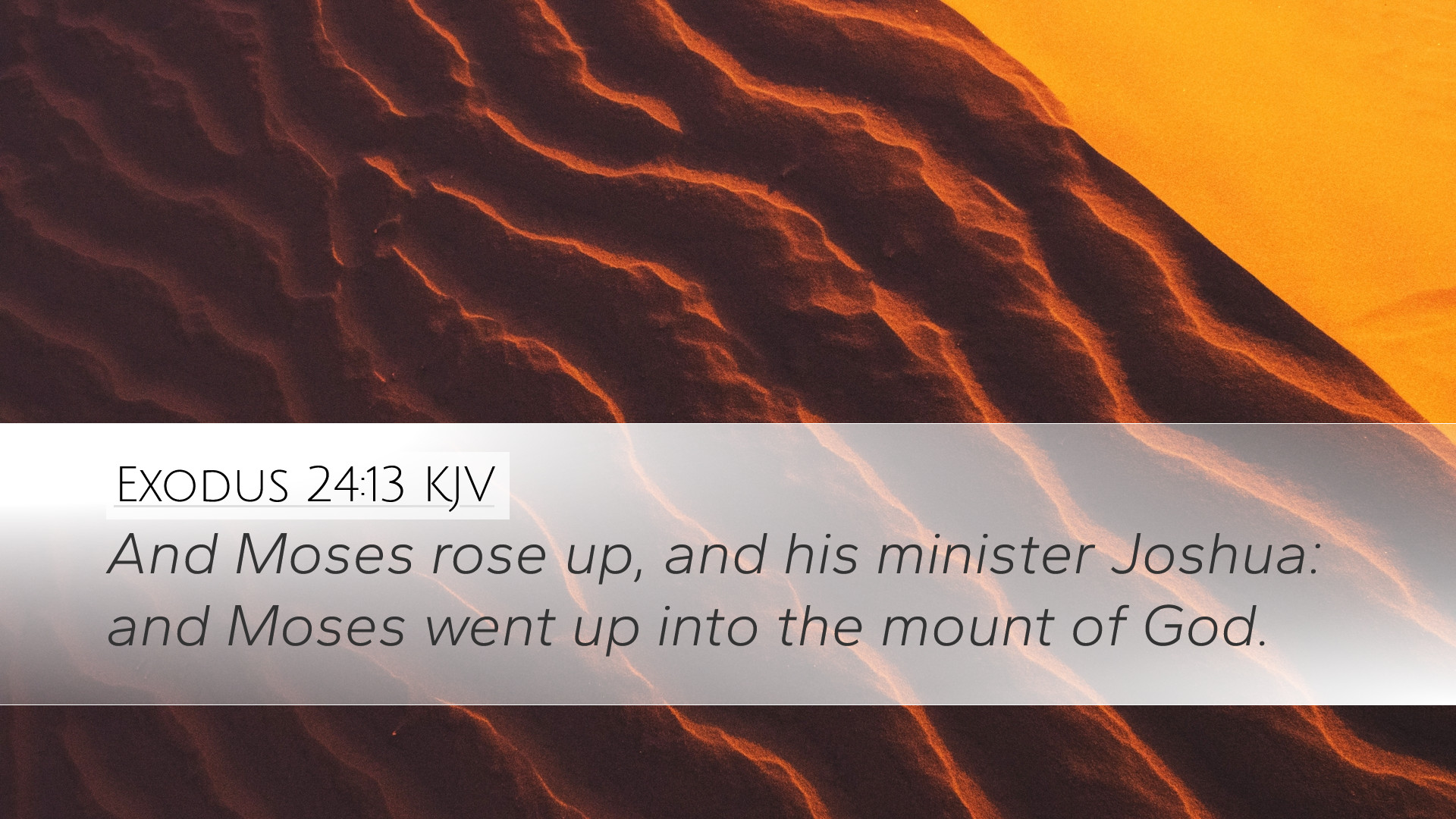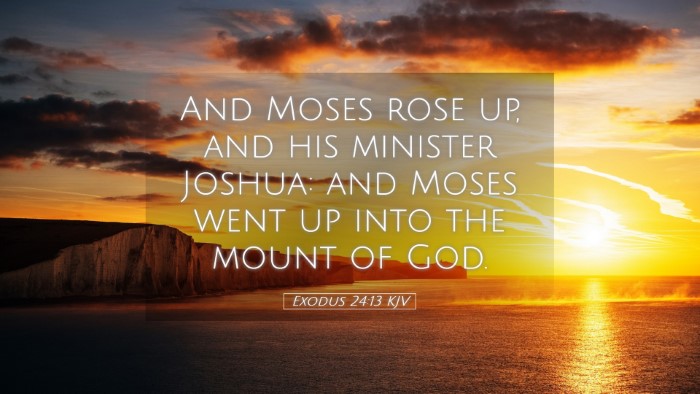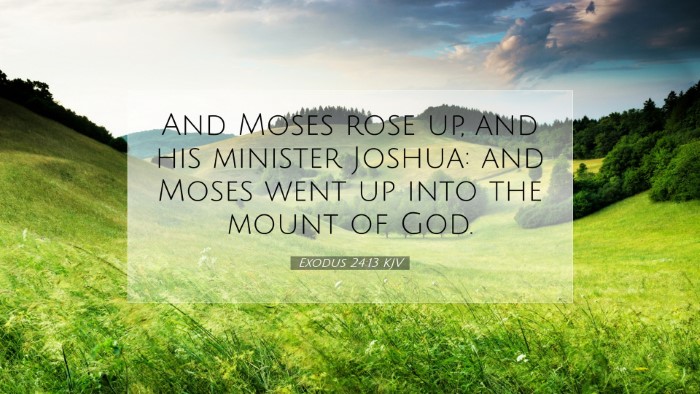Commentary on Exodus 24:13
Verse Explanation: Exodus 24:13 states, "And Moses rose up, and his minister Joshua: and Moses went up into the mount of God." This verse captures a pivotal moment in the narrative of the Israelites at Mount Sinai, highlighting the leadership of Moses and his assistant Joshua as they approach God for divine revelation.
Contextual Overview
In order to fully appreciate the significance of this verse, one must consider its context within the Exodus narrative. The Israelites had just made a covenant with God, agreeing to follow His commandments (Exodus 24:3). The events of this chapter set the stage for the giving of the law, which is foundational for Israel's identity as a nation.
Moses and Joshua: A Mentorship Dynamic
Moses as Leader: Moses is portrayed as the primary mediator between God and the people of Israel. His role is not only that of a leader but also of a servant. Matthew Henry emphasizes that Moses "rose up," indicating his readiness to obey God's command and ascend the mountain (Henry's Commentary).
Joshua's Ministerial Role: Joshua, referred to as Moses' minister, plays a crucial role as his aide and successor. Albert Barnes points out that this is the introduction of Joshua’s significant role in the leadership of Israel, suggesting the preparation for future leadership as Moses was to eventually pass the baton (Barnes' Notes on the Bible).
Theological Insights
Exodus 24:13 sheds light on several theological themes:
- Divine Call and Response: Moses’ action of rising up signifies his obedience and willingness to respond to God’s call. This sets a precedent for future leaders responding to God’s direction.
- The Heightened Relationship with God: The ascent to the mount symbolizes deepening communion with God, a theme that is echoed throughout scripture, particularly in moments of significant covenantal interactions.
- Preparation for Revelation: The presence of both Moses and Joshua illustrates the foundational principles of leadership within the community, underscoring the importance of mentorship and training in spiritual leadership.
Examinations by Notable Commentators
Each of the noted commentators provides unique insights into this pivotal moment:
Matthew Henry: He emphasizes the notion of readiness in spiritual leadership. He notes that Moses did not hesitate in his duties; he prepared himself for the important task of receiving the law. Henry also reflects on the significance of Joshua accompanying Moses, seeing this as a formative experience for Joshua's future leadership.
Albert Barnes: Barnes highlights the transition from Moses to Joshua, illustrating the importance of preparation and the transfer of authority that is central to the leadership structure within Israel. He interprets Joshua's ministerial role as not just a helper, but as a vital link in the continuity of God's plan for His people.
Adam Clarke: Clarke provides insight into the spiritual implications of ascending the mountain. He suggests that this act symbolizes a spiritual elevation that is necessary for receiving divine revelation. Clarke also discusses the implications of this moment for the priestly and prophetic roles that would emerge in Israel's future.
Application for Today
For pastors, students, and theologians, Exodus 24:13 serves as a reminder of the importance of being prepared for divine encounters.
- Leadership Preparation: This verse encourages current leaders to invest in the next generation, prioritizing mentorship that shapes their spiritual and leadership journey.
- Obedience to God’s Call: The readiness of Moses to ascend the mountain speaks volumes about the need for a responsive heart to God’s ongoing call in our lives.
- Covenantal Community: Reflecting on the communal aspect of receiving the law, it underscores the need for churches today to embrace their covenant relationship with God and one another.
Conclusion
Exodus 24:13 is not simply a historical account but a profound moment that encapsulates themes of leadership, obedience, and the relationship between God and His people. The insights derived from this verse, blended with the thoughts of esteemed biblical commentators, challenge and inspire us to reflect on our readiness to ascend to our own ‘mountains’ of faith.


